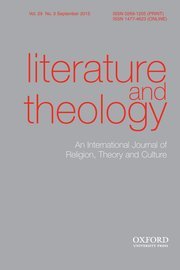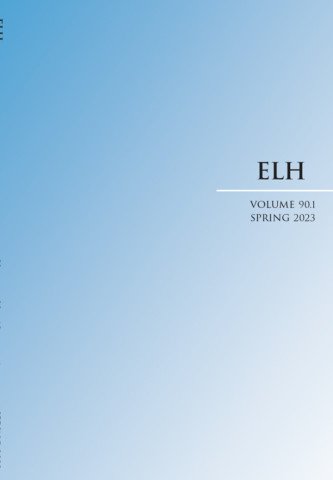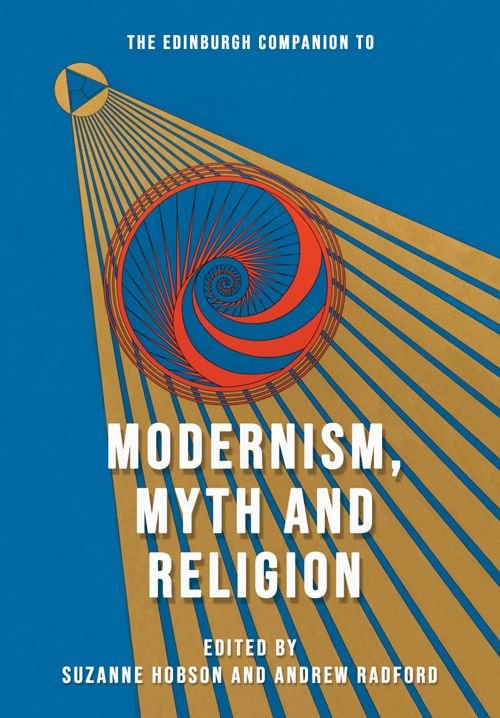The articles below helped develop the arguments made over the course of Modernism and Religion: Between Mysticism and Orthodoxy.
Directing Modernist Spirituality: Evelyn Underhill, the Subliminal Consciousness and Spiritual Direction
Outlining an alternative trajectory for modernist spirituality to that traced in Pericles Lewis’s Religious Experience and the Modernist Novel (2010), I argue that modernist religious thought, far from playing heir to the long march of secularization, was in fact conditioned by a late-nineteenth-century cultural crisis that issued in a range of religious experiments and renewals, one of which was Evelyn Underhill’s Mysticism: A Study in the Nature and Development of Man’s Spiritual Consciousness (1911), a text that not only brought together mystical traditions and scientific discoveries, but also used this interdisciplinary remit to counter existing secularizing perspectives. An important dimension of Underhill’s work was its collaborative nature; it offers, I argue, not access to rarefied enlightenment, but rather a bold attempt to navigate a treacherous religious landscape.
Jesuits and Modernism? Catholic Responses to Anti-Modernism and Versions of Late Modernism
Recent critical discussion has suggested that cultural modernism took its impetus from a rallying cry against the Vatican’s condemnation of theological modernism in 1907. As a counterpoint to this position, I trace the intra-Catholic counter-reaction to the bull—a reaction that continued to explore issues important to modernity while steering clear of sensitive topics—that had lasting influence on the work of T. S. Eliot and David Jones. This historical excavation opens up an underappreciated area of thought that complements recent approaches to the study of modernism and religion
David Jones's ‘Barbaric-Fetish’: Frazer and the ‘Aesthetic Value’ of the Liturgy
Much recent critical interest in the relationship between modernism and religion has concerned itself with the occult, spiritualism and theosophy as opposed to institutional religion, relying on an implicit analogy between the experimental in religion and the experimental in art. I argue that considering Christianity to be antithetical to modernism not only obscures an important facet of modernist religious culture, but also misrepresents the at-once tentative and imaginative thinking that marks the modernist response to religion. I explore the ways in which the poet-painter David Jones combined sources familiar from cultural modernism – namely Frazer's The Golden Bough – with Catholic thinking on the Eucharist to constitute a modernism that is both hopeful about the possibilities for aesthetic form and cautious about the unavoidable limitations of human creativity. I present Jones's openness to the creative potential of the Mass as his equivalent to the more recognisably modernist explorations of non-Western and ancient ritual: Eliot's Sanskrit poetry, Picasso's African masks and Stravinsky's shamanic rites and suggest that his understanding of the church as overflowing with creative possibilities serves as a counterweight to the empty churches of Pericles Lewis’ seminal work, Religious Experience and the Modernist Novel (2010).
Dissociating Psychology: Religion, Inspiration, and T.S. Eliot's Subliminal Mind
Using archival resources, I outline T. S. Eliot's fascination with the porous borders between science and religion. I show how the notion of a dissociated consciousness developed by the French psychologist Pierre Janet informed the ‘dissociation of sensibility’, and how Janet's idea, repackaged as the subliminal mind and used by psychologists of religion such as William James, shaped the account of the creative process developed in The Use of Poetry and the Use of Criticism. I suggest this contextualization of Eliot's penchant for both mysticism and skepticism informs the slippages in tone, at once visionary and moribund, in ‘The Hollow Men’.
Redefining Marriage in Interwar Britain: Internal Transformation and Personal Sacrifice in the Poetry of H.D.
This chapter situates H.D.'s life and work within shifting legal, philosophical and social understandings of marriage. Beginning with H.D.'s account of her own divorce, the essay explains the rationale for and the resistance to the liberalization of divorce laws in England during the interwar period. It then looks at how thinkers such as Charles Williams and Denis de Rougemont used the liberalization of divorce laws to refocus religiously informed accounts of marriage away from concern with what did or did not constitute justified reason for the dissolution of a marriage to what happened within a marriage itself, using marriage as a way of understanding social and political relationships more broadly. Finally, the essay connects the antiwar polemic of H.D.'s poem Helen in Egypt and these new understandings of marriage by means of an analysis of the problematic union of Helen and Achilles at the close of the poem.
Sacred Ground: Orthodoxy, Poetry and Religious Change
This chapter uses the example of the twentieth-century retreat movement to challenge several assumptions about the relationship between secularisation and literary modernism. It shows how institutional religions – in this case of the Church of England – responded to processes of religious change at work through the first half of the twentieth century. The silent retreats developed by the Anglo-Catholic Association for Promoting Retreats (APR) represent an attempt on the part of institutional religion to draw on (and to draw in) the contemporary interest in mysticism and spirituality and to provide it with a religious home within the church. The development of a new religious practice, namely the rise of mass participation in lay retreat, is considered alongside developments in twentieth-century religious poetry as represented by T. S. Eliot’s Four Quartets. The chapter argues that transformations in religious orthodoxy are as an important a development in the emerging relationship between modernism and religion as the rise of new religions and the well-documented prominence of no religion.





